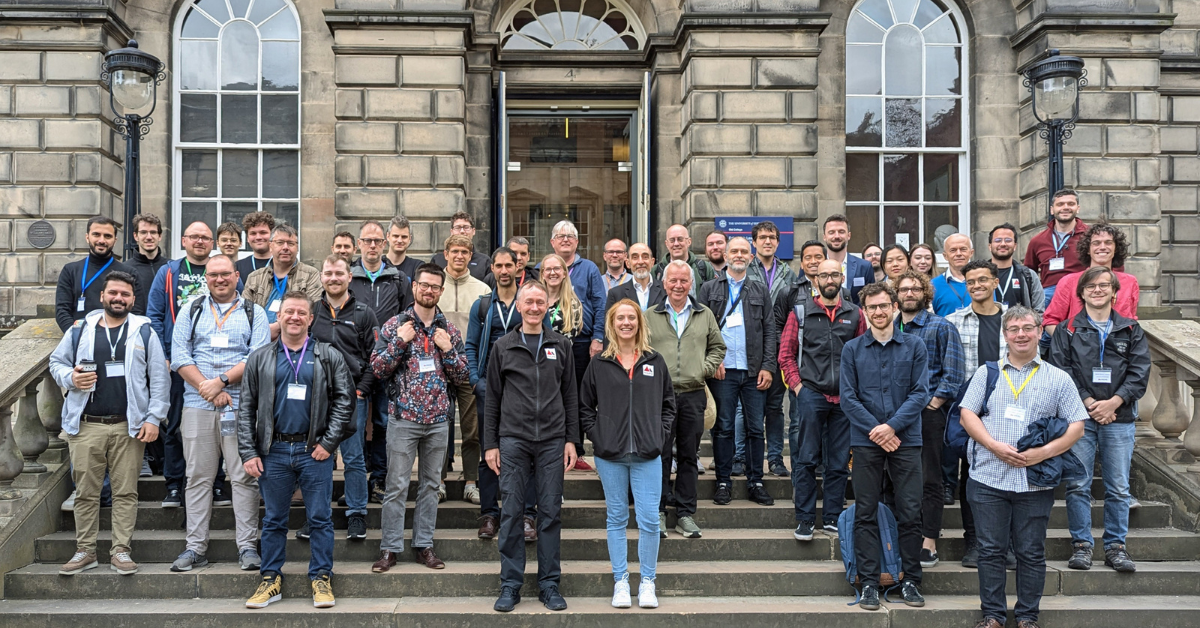First HiGHS workshop attracts a wide spectrum of industrial participants

HiGHS is the world’s best open-source linear optimization software, and its first workshop took place at the University of Edinburgh from 26-28 June 2024.
Developed by Julian Hall and Ivet Galabova, HiGHS makes use of solvers written by optimization PhD students in the School of Mathematics. Reflecting its extensive user base, most of the Workshop participants were from industry.
“Although we knew some of the participants, the pleasure of discovering happy HiGHS users never grows old, and it was even better to do so in person”, Julian says. “The workshop was also a great opportunity to generate interaction between users”.
Bringing together major users of optimization
The workshop was attended by 27 representatives from 19 companies that use or distribute HiGHS, including MathWorks, Microsoft, Octopus Energy and Tesco, and smaller companies (some of which are major players in the optimization modelling and software industry).
Thirteen representatives presented wide-ranging use cases of HiGHS in the fields of operational research consultancy, computing, modelling, optimization, logistics, and management/investment for energy and water.
Julian adds, “It’s great to see HiGHS being used practically in such a wide range of application areas, creating impact that is both broad and deep”.
Also attending were five academics from Åbo Akademi University, the Technical University of Berlin, and the Universities of Edinburgh, Glasgow and Antwerp, as well as 14 students from the Universities of Edinburgh, Oxford, Strathclyde and Surrey, and ENSTA (Paris). Five academic talks covered the use of HiGHS in optimization, genetics, medicine, and energy systems.
View the full workshop programme (presentations linked)
What’s next for HiGHS?
Although HiGHS has the world’s best open-source interior point (IPM) solver for linear programming problems, the HiGHS Senior Optimization Solver Developer, Filippo Zanetti, is developing a new IPM solver that will be better still, and will also solve quadratic programming problems.
A facility to calculate an irreducible infeasible system within a set of infeasible linear inequalities is a feature on the wish list of many HiGHS users, since it’s a great aid to model development and not available in any open-source software. Julian is now writing a prototype calculator that should be available by the end of August.
Major new funding will enable Julian to focus on enhancing the mixed integer programming solver over the next 12 months, and two industrially-funded PhD students will join the HiGHS team in September.
He adds, “Having gone from being a collection of solvers written by PhD students, to a world-leading academic optimization software project, HiGHS will soon be operating as if it were a small, self-funded optimization company”.
Learn more about HiGHS on the School of Mathematics website



